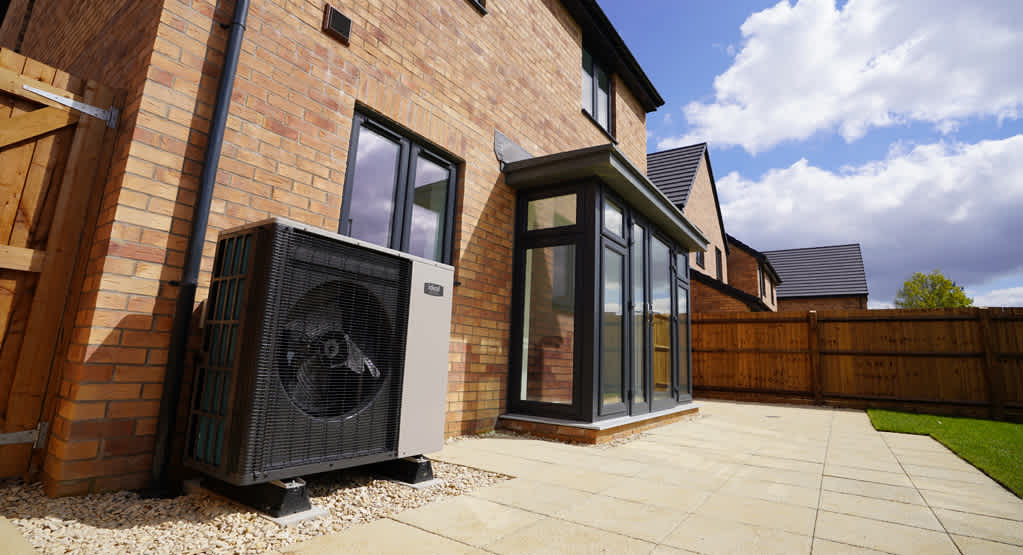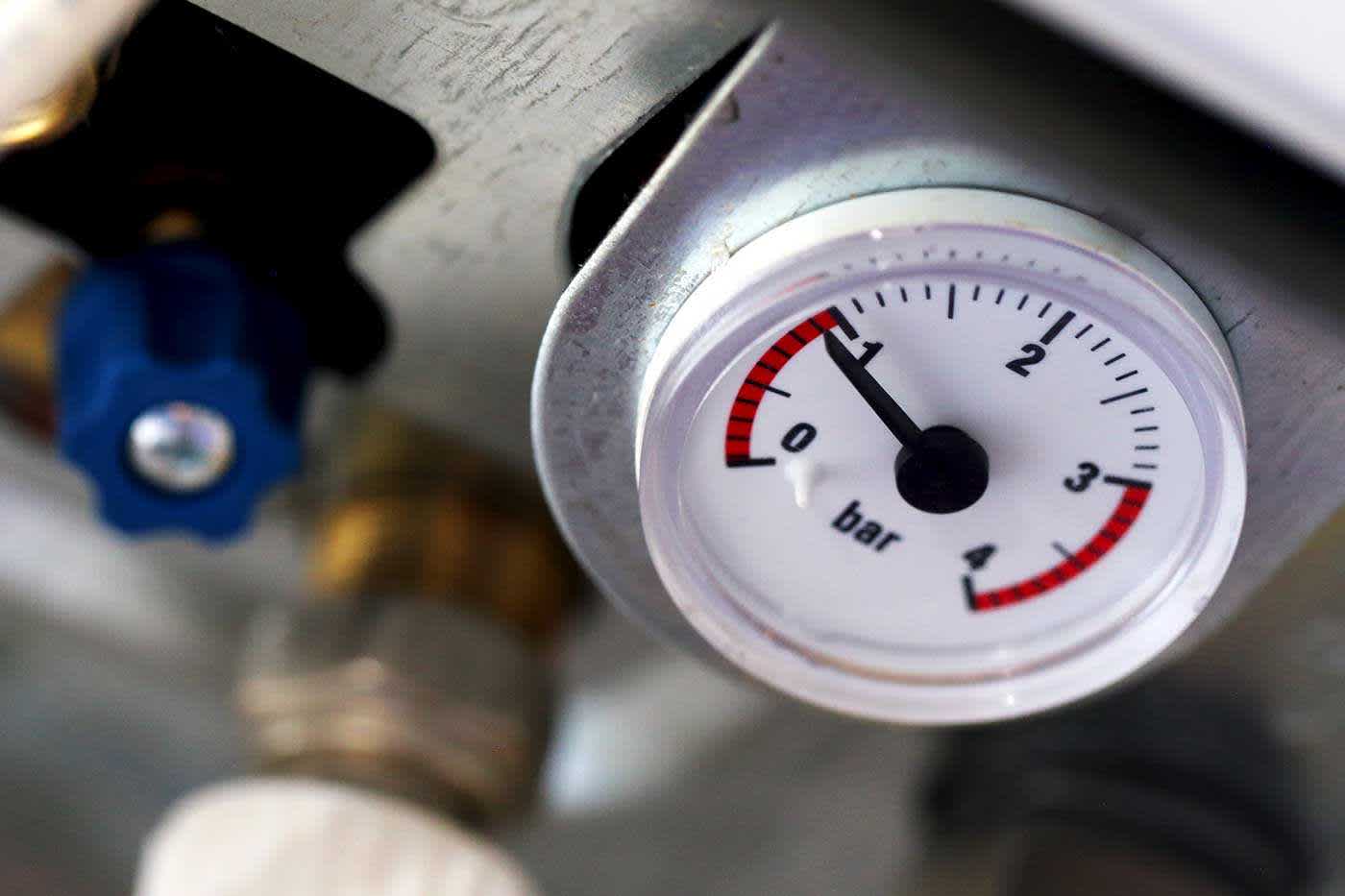
Why is my boiler losing pressure?
If the pressure in your modern boiler gets too low, the system will typically shut down as a safety measure. But if your heating system is enclosed, how can the boiler pressure possibly drop?
The answer to "why is my boiler losing pressure?" can be due to several reasons, from minor leaks to component malfunctions. In this guide, we'll explore the most common causes of low pressure and explain exactly what boiler pressure is. Most importantly, we'll tell you what to do when you notice a pressure drop and when it might be time to call in a professional.
What is boiler pressure?
Inside your boiler system, there needs to be a certain level of pressure to ensure water flows freely through the pipes and out of the taps in your home when needed. This pressure is what moves the water through your heating system, and without it, your boiler simply wouldn’t work, and you’ll be left with no hot water or heating.
What should my boiler pressure be?
Before looking at the causes of pressure loss, it's important to know the correct level.
When the heating is off, your boiler pressure gauge should read between 1 and 1.5 bar. A green zone on the gauge itself often indicates this.
What should the boiler pressure be when heating is on? When your heating is running, the water inside expands, and it's normal for the pressure to rise slightly. It should increase by around 0.5 bar, so it might sit closer to 2 bar while active.
You may need to take action if your pressure drops below 1 bar when the system is cold.
What is the impact of low boiler pressure?
If your boiler pressure drops, the system won’t work properly, as the pressure won’t be at the required level to pump water through the boiler system. Low boiler pressure will cause your boiler to work harder when trying to heat your home, meaning more energy is used, which could result in your energy bills increasing. This won’t cause any damage to your boiler, though, nor will it reduce its lifespan.
What to do if your boiler keeps losing pressure
If you notice your boiler pressure is low, you can often repressurise the system yourself. It’s usually easy to get your boiler pressure back to the 1.5 bar operating range by opening the filling loop valves and letting more water in.
Here’s how to repressurise your boiler system:
Turn off your boiler and wait for it to cool down completely.
Check that both ends of the filling loop (the silver braided hose) are securely attached.
Open both valves to allow cold mains water to enter the heating system. You should hear the water flowing.
Watch the pressure gauge closely. When it reaches the recommended 1.5 bar, turn off both valves, one after the other.
Turn your boiler back on.
It’s important to note, however, that if you’ve lost pressure, it’s usually because something isn’t quite right with your system, and topping up the water may only be a temporary measure.
Have a look through the items below one by one. If the problem keeps coming back, speak to a Gas Safe registered engineer, who should be able to diagnose the issue – if there is a more serious underlying issue causing your low boiler pressure, it could be time for a new boiler or a repair.
Common causes for a boiler losing pressure
Is your boiler leaking?
If there are puddles or excessive amounts of water around your boiler, you could have a leak inside your boiler system. It’s unlikely that the pipework has burst, so the most common places to look are at the joints. Check around the radiators where the pipework enters and leaves. If there is standing water, you should call a plumber to come and take a look.
Puddles aren’t always evidence of where there’s a leak, however. Slow leaks can often evaporate before they form puddles, especially in the summer. Look for clean spots on hard floors that are surrounded by dust, or black marks where persistent dampness has taken hold. Check ceilings for stains, especially around the edges where they meet the walls. Central heating leaks are rarely torrential, but they will certainly lower the boiler’s pressure over time.
Read our detailed guide on what to do if your boiler is leaking.
Has the inhibitor been diluted?
The water that circulates around the system should have a chemical mixed in with it called an inhibitor, which slows down the chemical reaction between the water and the metal of the radiators (usually steel). It also prevents gas build-up, as the reaction between water and steel releases gases, which forms bubbles and will eventually start replacing water in the boiler system, reducing the pressure. You’ll be able to raise the pressure by bleeding the radiators and putting more water in, but it’s a temporary measure.
If you’ve regularly been topping up the boiler system with pure mains water, it’s likely that the concentration of the inhibitor has become too low. You should get a central heating specialist to drain the system and refill it with the correct amount of inhibitor.
Is the expansion vessel working?
Like all materials, water expands as it heats up, and when it cools, it contracts. To account for this, every pressurised central heating system has an expansion vessel. However, if the rubber bursts or tears, water will fill the air gap, and the pressure in the system will drop.
Obviously, in a pressurised system, this would be a problem. The volume inside the system doesn’t change, so like over-inflating a tyre, you could cause a burst.
An expansion vessel is basically a small tank with a rubber diaphragm going across it (think of a syringe, except the plunger is attached to the inside of the tube). On one side of the rubber is the pressurised water from the central heating system, on the other is compressed air. When the temperature rises, the volume of water grows and pushes the diaphragm towards the air. When it cools, the air pressure in the expansion vessel presses back against the water, keeping the system pressure constant. If there is a fault with your expansion valve, this can affect your boiler pressure directly, due to its integral role in the inner workings of a boiler.
If you have a sudden drop in pressure and there’s no obvious sign of a leak, the expansion vessel could need investigating. It wouldn’t be advisable to refill the central heating system, as the increase in pressure without the safety of an expansion vessel could cause a failure.
Is the pressure relief valve damaged?
This valve is a safety device that releases water if the pressure gets too high. Like any tap, it can wear out and start to leak. Check the outlet pipe (usually on the outside wall behind your boiler) for any drips. In normal operation, it should be dry. If it's wet, call a Gas Safe registered engineer.
Is the boiler’s pump speed too high?
In every pressurised central heating system there has to be a pump to get the water moving around it. If the pump’s speed is too high, however, it can cause air bubbles to enter the flow of water, and that will eventually lead to the problems covered above. A boiler engineer should be able to set the pump to the correct speed.
Is the boiler pump damaged?
If the boiler pump is damaged, it will not be as efficient and could struggle to maintain pressure. If the pump is extremely hot to touch, water is leaking, or the water flowing through the pump is cold, it is likely that your boiler pump is damaged. This should come up during your annual inspection, but if pressure drops suddenly, it could be down to the pump. If you have concerns about your boiler pump being damaged, you should call in an expert.
That covers the most common causes of boiler pressure drops. Most of them are professional jobs that should not be attempted by homeowners, as pressure drops always have an underlying cause. If it’s happening regularly, you should really get the system checked out.
For more information and help with issues your boiler may have, head over to our tips & advice page. Also, keep an eye on our socials, such as Facebook and X, for regular updates and support.

















